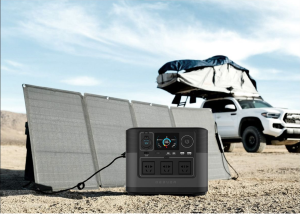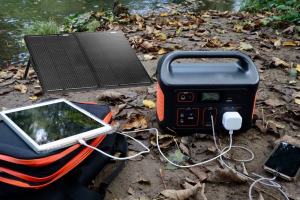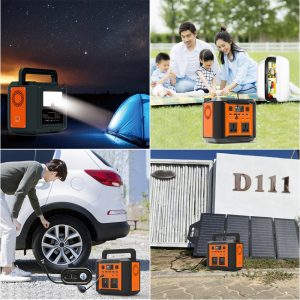More
Understanding the Limitations: Disadvantages of Outdoor Portable Power Stations
Understanding the Limitations: Disadvantages of Outdoor Portable Power Stations
Introduction:
Outdoor portable power stations have gained immense popularity due to their convenience and versatility in providing power during outdoor adventures. However, like any technology, they also come with certain limitations and disadvantages. In this blog post, we will explore some of the disadvantages of outdoor portable power stations, helping you make an informed decision and understand the potential challenges that may arise when using these devices.
-
Limited Power Capacity:
One of the primary disadvantages of outdoor portable power stations is their limited power capacity. While they are capable of powering small appliances, electronic devices, and lighting, their capacity may not be sufficient for running high-power devices such as large refrigerators, air conditioners, or power tools. It’s essential to consider the power requirements of your devices and ensure that the power station’s capacity aligns with your needs.
-
Limited Runtime:
Outdoor portable power stations are powered by rechargeable batteries, which means they have a finite runtime. The runtime varies depending on the capacity of the power station and the power consumption of the connected devices. While some power stations can provide power for several hours or even days, continuous usage of high-power devices can drain the battery quickly. It’s crucial to manage your power consumption and plan accordingly to ensure you don’t run out of power during your outdoor activities.
-
Recharging Challenges:
While outdoor portable power stations offer the convenience of portability, recharging them can be a challenge, especially in remote locations without access to traditional power sources. Many power stations can be recharged using AC outlets, DC outlets in vehicles, or solar panels. However, solar recharging may be slow and dependent on sunlight availability. Additionally, if you rely solely on solar charging, overcast weather or limited sunlight can affect the recharging process. It’s important to consider the availability of recharging options and plan for alternative methods or backup power sources if needed.
-
Weight and Bulkiness:
Although outdoor portable power stations are designed to be portable, larger capacity models can still be relatively heavy and bulky. Carrying them for extended periods during outdoor activities, especially when hiking or backpacking, can become cumbersome and add extra weight to your gear. It’s important to consider the weight and size of the power station and choose a model that suits your mobility needs and preferences.
-
Cost:
Another disadvantage of outdoor portable power stations is their cost. High-quality power stations with larger capacities can be quite expensive. While they offer numerous benefits, the upfront investment may be a significant consideration for some individuals. It’s essential to evaluate your budget and weigh the cost against the intended usage and long-term benefits the power station provides.
-
Maintenance and Lifespan:
Outdoor portable power stations require regular maintenance and care to ensure optimal performance and longevity. Batteries may degrade over time, reducing the overall capacity and runtime of the power station. It’s important to follow the manufacturer’s guidelines for maintenance, including proper storage, regular charging, and periodic battery replacement. Understanding the lifespan and warranty of the power station can help you gauge its long-term value and plan for future maintenance or replacement.
Conclusion:
While outdoor portable power stations offer numerous advantages in providing power during outdoor adventures, they also come with certain limitations. Understanding the disadvantages, such as limited power capacity, runtime, recharging challenges, weight, cost, and maintenance requirements, allows you to make informed decisions and manage your expectations when using these devices. By carefully evaluating your power needs and considering the potential challenges, you can choose the right outdoor portable power station that aligns with your requirements and enhances your outdoor experiences while mitigating any disadvantages.












